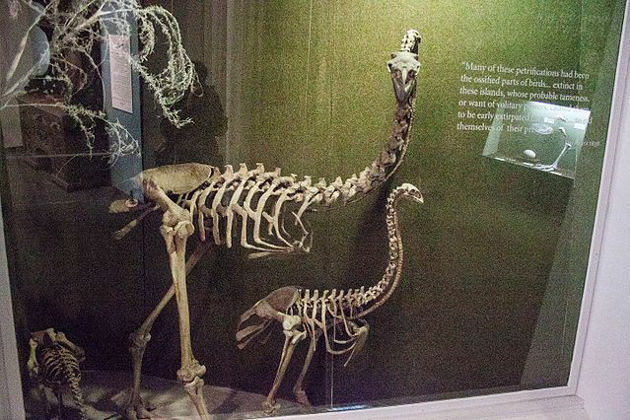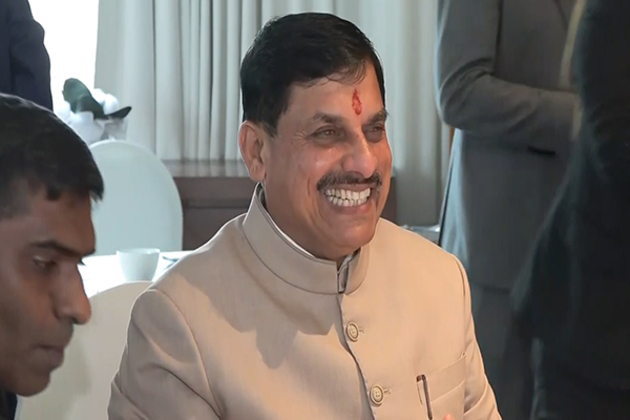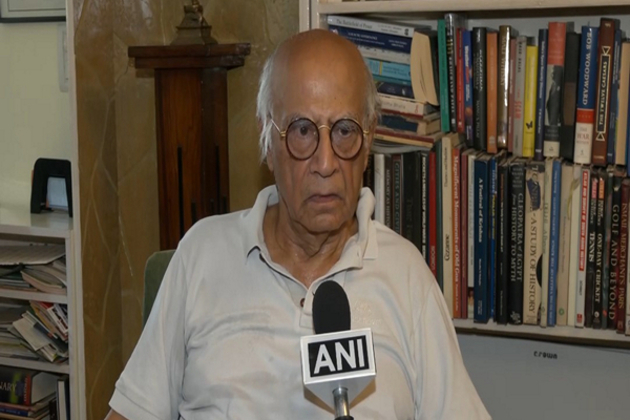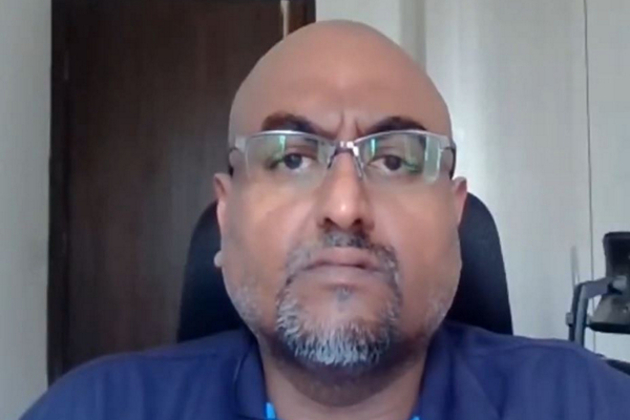Was the Air India crash caused by pilot error or technical fault? None of the theories holds up - yet
The Conversation
14 Jul 2025, 07:03 GMT+10
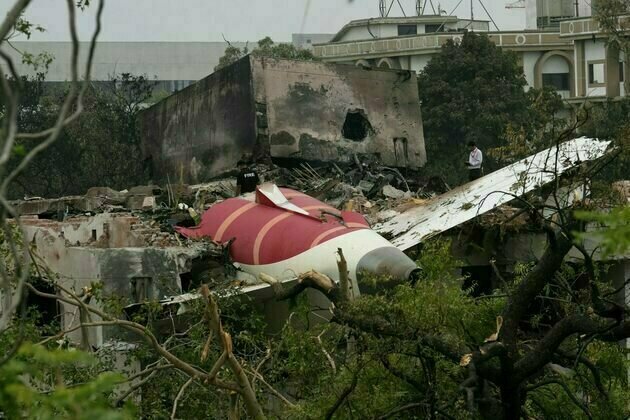
Over the weekend, the Indian Aircraft Accident Investigation Bureau released a preliminary report on last month's crash of Air India flight 171, which killed 260 people, 19 of them on the ground.
The aim of a preliminary report is to present factual information gathered so far and to inform further lines of inquiry. However, the 15-page document has also led to unfounded speculation and theories that are currently not supported by the evidence.
Here's what the report actually says, why we don't yet know what caused the crash, and why it's important not to speculate.
What we know for certain is that the aircraft lost power in both engines just after takeoff.
According to the report, this is supported by video footage showing the deployment of the ram air turbine (RAT), and the examination of the air inlet door of the auxiliary power unit (APU).
The RAT is deployed when both engines fail, all hydraulic systems are lost, or there is a total electrical power loss. The APU air inlet door opens when the system attempts to start automatically due to dual engine failure.
The preliminary investigation suggests both engines shut down because the fuel flow stopped. Attention has now shifted to the fuel control switches, located on the throttle lever panel between the pilots.
Data from the enhanced airborne flight recorder suggests these switches may have been moved from "run" to "cutoff" three seconds after liftoff. Ten seconds later, the switches were moved back to "run".
The report also suggests the pilots were aware the engines had shut down and attempted to restart them. Despite their effort, the engines couldn't restart in time.
Flight data recorders don't capture pilot actions. They record system responses and sensor data, which can sometimes lead to the belief they're an accurate representation of the pilot's actions in the cockpit.
While this is true most of the time, this is not always the case.
In my own work investigating safety incidents, I've seen cases in which automated systems misinterpreted inputs. In one case, a system recorded a pilot pressing the same button six times in two seconds, something humanly impossible. On further investigation, it turned out to be a faulty system, not a real action.
We cannot yet rule out the possibility that system damage or sensor error led to false data being recorded. We also don't know whether the pilots unintentionally flicked the switches to "cutoff". And we may never know.
As we also don't have a camera in the cockpit, any interpretation of pilots' actions will be made indirectly, usually through the data sensed by the aircraft and the conversation, sound and noise captured by the environmental microphone available in the cockpit.
Perhaps the most confusing clue in the report was an excerpt of a conversation between the pilots. It says:
In the cockpit voice recording, one of the pilots is heard asking the other why did he cutoff. The other pilot responded that he did not do so.
This short exchange is entirely without context. First, we don't know who says what. Second, we don't know when the question was asked - after takeoff, or after the engine started to lose power? Third, we don't know the exact words used, because the excerpt in the report is paraphrased.
Finally, we don't know whether the exchange referred to the engine status or the switch position. Again, we may never know.
What's crucial here is that the current available evidence doesn't support any theory about intentional fuel cutoff by either of the pilots. To say otherwise is unfounded speculation.
The preliminary report indicates that, for now, there are no actions required by Boeing, General Electric or any company that operates the Boeing 787-8 and/or GEnx-1B engine.
This has led some to speculate that a mechanical failure has been ruled out. Again, it is far too early to conclude that.
What the preliminary report shows is that the investigation team has not found any evidence to suggest the aircraft suffered a catastrophic failure that requires immediate attention or suspension of operations around the world.
This could be because there was no catastrophic failure. It could also be because the physical evidence has been so badly damaged that investigators will need more time and other sources of evidence to learn what happened.
In the aftermath of an accident, there is much at stake for many people: the manufacturer of the aircraft, the airline, the airport, civil aviation authority and others. The families of the victims understandably demand answers.
It's also tempting to latch onto a convenient explanation. But the preliminary report is not the full story. It's based on very limited data, analysed under immense pressure, and without access to every subsystem or mechanical trace.
The final report is still to come. Until then, the responsible position for regulators, experts and the public is to withhold judgement.
This tragedy reminds us that aviation safety depends on patient and thorough investigation - not media soundbites or unqualified expert commentary. We owe it to the victims and their families to get the facts right, not just fast.
 Share
Share
 Tweet
Tweet
 Share
Share
 Flip
Flip
 Email
Email
Watch latest videos
Subscribe and Follow
Get a daily dose of Travel Trade news through our daily email, its complimentary and keeps you fully up to date with world and business news as well.
News RELEASES
Publish news of your business, community or sports group, personnel appointments, major event and more by submitting a news release to Travel Trade.
More InformationBusiness
SectionHuawei eyes new buyers for AI chips amid U.S. export curbs
SHENZHEN, China: As global chip competition intensifies, Huawei Technologies is exploring new markets in the Middle East and Southeast...
U.S. food prices at risk as Brazil tariff hits key imports
LONDON/NEW YORK CITY: American grocery bills may be headed higher as coffee and orange juice prices face upward pressure from new tariffs...
WK Kellogg sold to Ferrero as food giants chase shelf power
BATTLE CREEK, Michigan: In a major consolidation of iconic food brands, WK Kellogg has agreed to be acquired by the owner of Ferrero...
Filmmaker joins biotech effort to bring back extinct giant bird
WASHINGTON, D.C.: Filmmaker Peter Jackson's lifelong fascination with the extinct giant New Zealand flightless bird called the moa...
India seeks WTO nod for retaliatory tariffs on US
NEW DELHI, India: India has submitted a revised proposal to the World Trade Organization (WTO) in Geneva to implement retaliatory tariffs...
AI boom propels Nvidia to historic market cap milestone
SAN FRANCISCO, California: Nvidia, the Silicon Valley chipmaker at the heart of the artificial intelligence boom, this week briefly...
Airlines
SectionTravelers can now keep shoes on at TSA checkpoints
WASHINGTON, D.C.: Travelers at U.S. airports will no longer need to remove their shoes during security screenings, Department of Homeland...
Madhya Pradesh CM Mohan Yadav to hold key meetings on investment, strategic partnerships on 2nd day of Dubai visit
Dubai [UAE], July 14 (ANI): Madhya Pradesh Chief Minister Mohan Yadav will engage in high-level discussions with global business leaders,...
Was the Air India crash caused by pilot error or technical fault? None of the theories holds up - yet
Over the weekend, the Indian Aircraft Accident Investigation Bureau released a preliminary report on last month's crash of Air India...
"Don't think report is ok": Aviation expert Sanat Kaul questions AI 171 crash report, calls for pilot inclusion in probe panel
New Delhi [India], July 13 (ANI): Aviation expert Sanat Kaul on Sunday raised concerns over the preliminary report of the Air India...
Xinhua Headlines: China completes "power expressway loop" around southern Xinjiang desert
* China has finished construction of a 4,197-km extra-high voltage power transmission loop around the Tarim Basin, home to the country's...
"Not about witch hunt to blame pilots but ...": Aviation Safety consultant Mark D Martin slams AAIB report on Air India flight 171 crash
New Delhi [India], July 13 (ANI): Aviation safety consultant and founder and CEO of Martin Consulting, Mark D Martin, on Sunday called...




